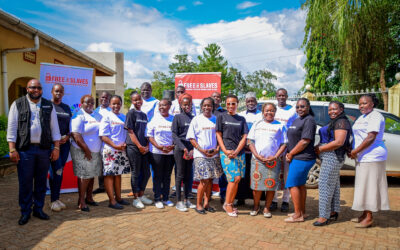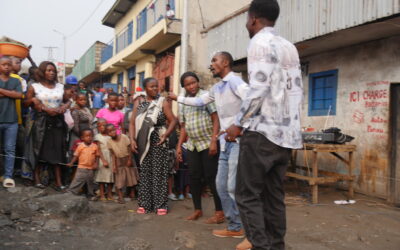Free the Slaves and our frontline partners in the DRC have found multiple forms of slavery in and around mining areas of eastern Congo. We in the U.S. are not separated from these human rights abuses, because there is evidence that minerals from Congo mines end up in the supply chains of cell phones, batteries and laptops—products we use everyday.
Through slavery at gunpoint, debt bondage, peonage, sexual slavery, and child soldiering, the “Three Ts” (tin, tungsten, tantalum) and gold are mined and smuggled into the global trade in metals. Because U.S. consumers and businesses are economically connected to slavery in Congo, we must be accountable. That’s why Free the Slaves worked with several other NGOs to call for the U.S. government to appoint a special envoy to the Africa Great Lakes region.
Uniting with representatives from affected industries, NGOs, human rights organizations, and socially responsible investor groups, we have called upon the Department of State to prioritize diplomatic efforts required under the Conflict Minerals Act and the Democratic Republic of the Congo Relief, Security, and Democracy Promotion Act.
We are pleased to announce that last Wednesday, the White House appointed Ambassador Barrie Walkley as the Department of State’s new Special Representative to the Great Lakes Region of Africa, which includes the Democratic Republic of the Congo.
“If given sufficient authority and autonomy, Ambassador Walkley could be the needed shot in the arm for the administration’s efforts to make progress on the conflict minerals trade, dismantling the LRA, and tackling justice and security sector reform in Congo,” said John C. Bradshaw, executive director of Enough Project.
Free the Slaves will be watching closely with encouragement and hope for real action to take place in the DRC. We believe that if slavery can be eradicated where it is most entrenched, it can be eradicated everywhere.


